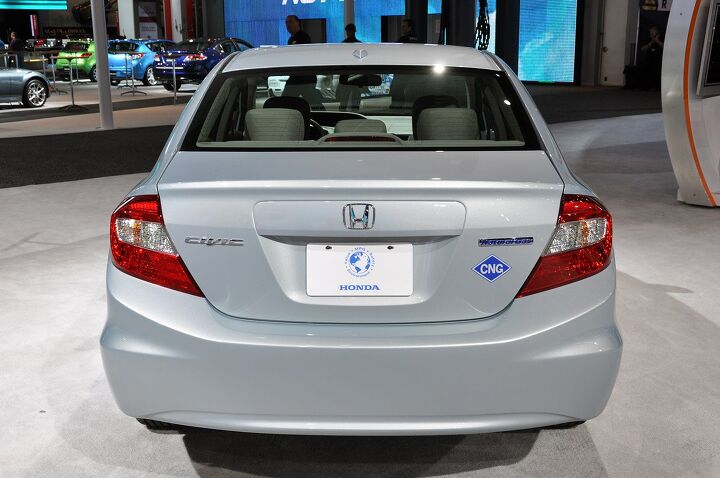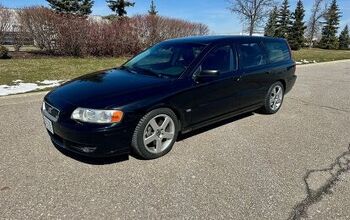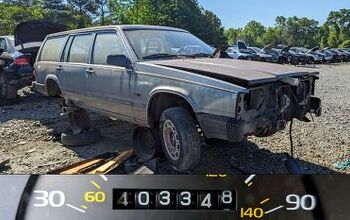Ask The Best & Brightest: Should CNG/Hybrid/Whatever Cars Have Access To Carpool Lanes?

This list, published by the State of California, lists the vehicles which will be eligible for unlimited carpool-lane access from now until January 1, 2015. Sharp-eyed TTAC readers will notice that there is just one readily-available, non-battery-powered, car-form-factor vehicle on the list: the Honda Civic GX.
If you’re interested in cutting your Cali commute time without plugging into a “charging station”, and you like Civics, this is good news. If you’re a Civic GX owner looking to sell, it’s even better news. If you have a new Toyota Prius, this is probably frustrating news.
The rest of us will probably have just one question: What does natural gas have to do with carpooling?
The idea behind carpool lanes is simple: they reward people who choose to reduce the number of vehicles on the freeway by offering those people exclusive access to a less-crowded lane. They also offer all my non-PC friends in Houston a chance to make jokes about being “HOV positive”. So far, so good, and most of the drivers with whom I’ve spoken have no fundamental issue with them.
Naturally, this relatively placid state of affairs can’t be permitted to continue in California, not when there’s a chance to put some eco-wackiness and traditional coastal elitism in the mix. In the early stages of Prius hysteria, 85,000 hybrids were permitted HOV lane access; that access expires this month.
The new super-citizens of the public roadway are expensive vehicles such as the Tesla Roadster and limited-production efforts like the Nissan Leaf. The Civic GX is probably your cheapest way into the carpool lane — short of, you know, actually carpooling.
Why are “intrinisically low emission vehicles” rewarded with a shorter commute? Since they pollute the Gaia less, shouldn’t they be forced to wait in traffic while the GMC Sierra 3500HD Vortecs of the world whiz by? That would be better for the environment, right?

More by Jack Baruth
Latest Car Reviews
Read moreLatest Product Reviews
Read moreRecent Comments
- ToolGuy I'm considering purchasing a few new Aston Martin vehicles.
- Spamvw 13 spoke rims from a 2005 Golf, I approve, as I have them on my '02 JSW TDI that hit 480k today.
- ToolGuy New car prices make me queasy will this help with that?
- Kcflyer On the bright side I just saw a commercial where the army is advertising the fact that women are now part of tank crews. I'm sure the compromises necessary to put women in front line combat arms won't in any way weaken our armed forces ability to win wars in the future. But, hey, at least that new BYD SUV will cost more, thanks uncle Joe.
- User This story fails to cite any regulation or trade journal to support the claim that a law suddenly prevented the sale of a product in a market.

































Comments
Join the conversation
Back OT, sort of. We just sold a two year old 50,000 mile Civic GX for the same price we paid for it new. It is a California "White sticker" car. As it turns out, the HOV lanes on the Harbor (I-110) and parts of the I-10 freeways in Los Angeles are being converted to toll lanes anyway. OT, doesnt the ass end of the new Civic look a lot like the last generation Camry?
All of these "it should be the MORE polluting vehicles allowed in" comments completely miss the point. The added incentive is not about the HOV lane use, it's about incentivizing the adoption of these vehicle for general use. Most of the people I know don't have a car solely for commuting. They have a car. They use it every day. They use it for every need, not just getting to work. If they've been incentivied to buy a cleaner and more fuel-efficient car by an HOV perk, then that vehicle has less overall negative impact than the less-efficient car they might otherwise have bought. THAT'S the purpose of the HOV exception. To get alt fuel/Hybrid/Electric/clean into general use, replacing older less efficient cars. And why the incentive is generally offered for a fixed time period, or to a fixed number of users, or both.